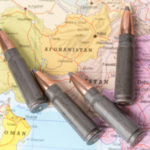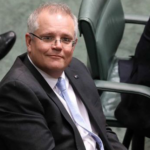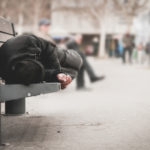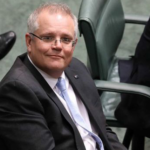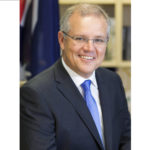Skewed Priorities: Morrison Promises Billions to Australian Special Forces
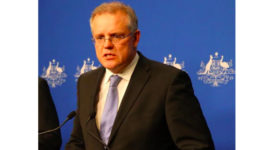
Prime minister Scott Morrison announced on 12 August at southwest Sydney’s Holsworthy army barracks that the government will be investing $3 billion in cutting edge military equipment for the nation’s special forces over the next 20 years.
The PM said the move will enhance responses to both international and domestic security threats, while defence minister Linda Evans explained it will allow special forces to be deployed “on operations anywhere in the world, at short notice, and in very uncertain conditions”.
The government recently greenlighted the first stage of Project Greyfin, which entails a $500 million investment over the next four years in state of the art equipment related to body armour, diving, parachuting, communications and training.
This cash injection – which marks Australia’s largest peacetime military investment – means total spending on defence over the next decade will amount to $200 billion. And it will also account for 2 percent of GDP by June 2021: a goal president Trump set for US allies.
However, as a number of escalating domestic issues are screaming for attention, it seems misguided that the Morrison government makes such a huge investment in specialist military units, whose operations in Afghanistan were shown to be somewhat redundant, as well as downright criminal.
An “Instagram war”
The move to bolster local special forces comes as their reputation has been tarnished and their purpose questioned, following the revelations of the Afghan Files, which are secret government documents former Australian military lawyer David McBride leaked to the ABC.
Following the AFP raid on the ABC Sydney offices in June, McBride told Sydney Criminal Lawyers that the Australian special forces “weren’t following the law” in Afghanistan and were neither carrying out operations to “actually win”, but were rather dropping “bombs to look good”.
The confidential files McBride leaked detail the “ethical decay” of the Australian special forces in Afghanistan over the period 2009 to 2013. This involved perpetrating war crimes, such as the indiscriminate killing of innocent civilians, as well as a failing to report on these rogue actions.
The former military legal advisor’s account – along with what’s set out in the documents – point to military units that have developed a “warrior culture”, in which basic human rights were no longer being upheld, whilst they were deployed in a war zone where their purpose was merely cosmetic.
Domestic threats
Australian special forces are regularly deployed prior to major domestic events, so as to provide backup for local law enforcement. The 2014 Brisbane G20 saw the 2nd Commando Regiment staging mock terrorism drills prior to the commencement of the conference.
But, the involvement of special forces in local incidents now has the potential to become more commonplace, as last year the Morrison government passed a bill that lowered the threshold for when defence force troops can be sent in to assist state and territory police forces.
The Defence Call Out Bill 2018 provides that the military can be deployed to deal with domestic incidents to “enhance” police efforts. And there’s potential for this to happen in the case of protests and industrial action if there’s a “reasonable likelihood” of “serious damage to property”.
Despite these measures being passed with bipartisan support, its certain that many Australians don’t approve of the prospect of having special forces being sent in to deal with domestic matters, especially in light of the outlaw culture that’s developed within certain units.
The poor get poorer
The Liberal Nationals government has announced the special forces funding hike as it simultaneously ignores long-term calls to raise the Newstart allowance. Those recipients living on unemployment benefits are currently forced to survive on an amount that’s way below the poverty line.
Mr Morrison has said that “the best form of welfare is a job”. So, rather than raise Newstart – which hasn’t seen a rise in real terms since 1994 – he’s simply encouraging the unemployed to get a job. Although, as ACOSS has pointed out, there’s “only one job available for every eight people looking”.
And then there’s the escalating homelessness crisis being faced nationally. This is evidenced with the increasing numbers of rough sleepers appearing on the street. However, those forced to live in public only account for about 20 percent of Australians with no fixed address.
Over the five year period ending in 2016, homelessness rose by close to 14 percent across the nation, with over 116,400 Australians without a home. In NSW, the numbers rose by 37 percent over that time, with 37,715 people experiencing homelessness as of the last Census.
And while those in the homelessness sector are working to provide suitable accommodation and assistance to those without a permanent home, it’s certain that a $3 billion shot in the arm would go a long way in supporting some of the most marginalised people in the community.
Climate must change the agenda
Of course, Morrison isn’t alone in his focus on upping military expenditure. ANU emeritus professor of strategic studies Hugh White recently told the ABC that this country needs to beef up its military, and even consider becoming a nuclear power.
However, these reactionary forces aren’t considering rising climate concerns. If last October’s IPCC report is anything to go by, investing in a carbon heavy sector, like the military, is becoming increasingly problematic, as the chance of causing irreversible climate damage is now a very real prospect.
And while the Morrison government should be looking at alternative ways forward, it’s doubling down on its failing neoliberal agenda. Last week, deputy PM Michael McCormack asserted that Pacific Island nations threatened by climate change will survive on Australian aid and fruit picking.
Indeed, the PM’s vision for the future involves Liberal Nationals politicians sitting on a well-watered Capital Hill amongst a drought-stricken Canberra landscape, while Parliament House is surrounded by newly equipped special forces troops deployed to protect them from the poor.



